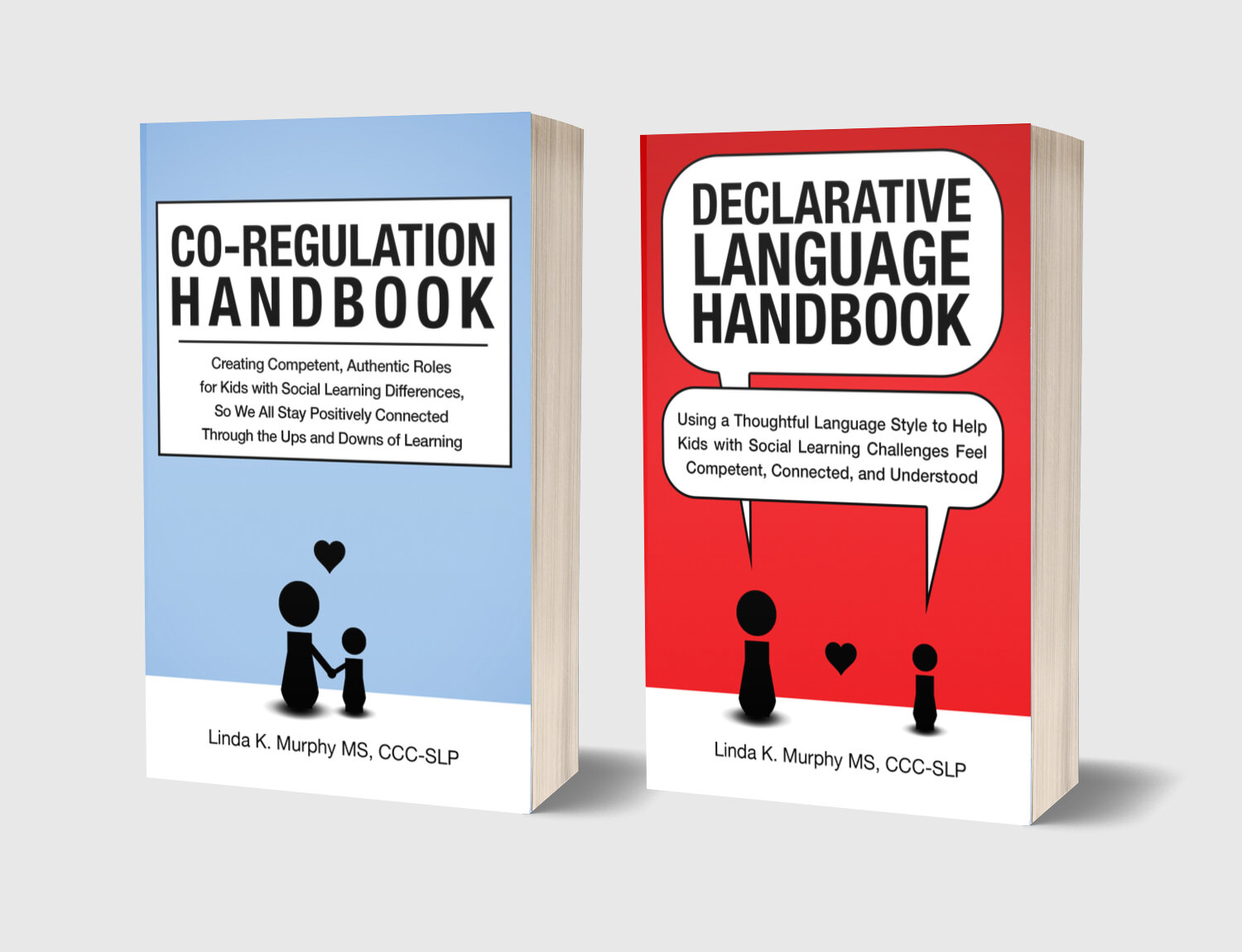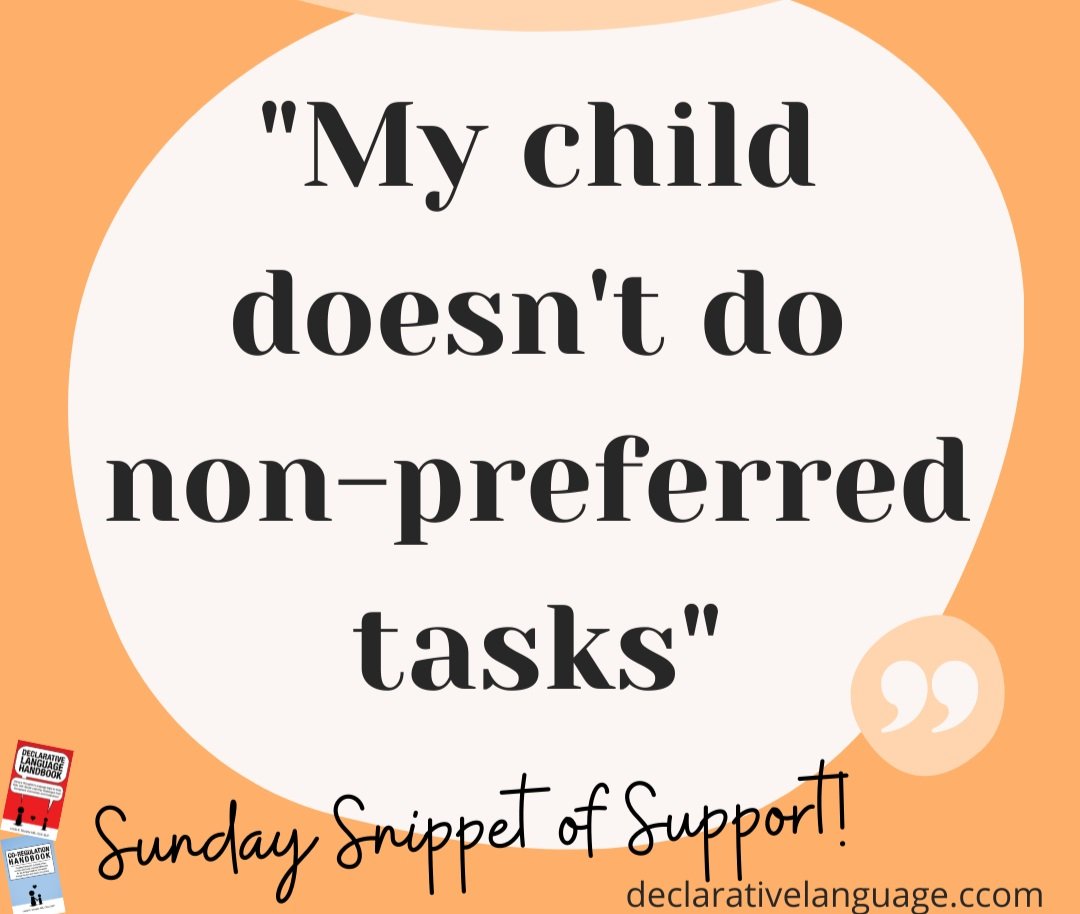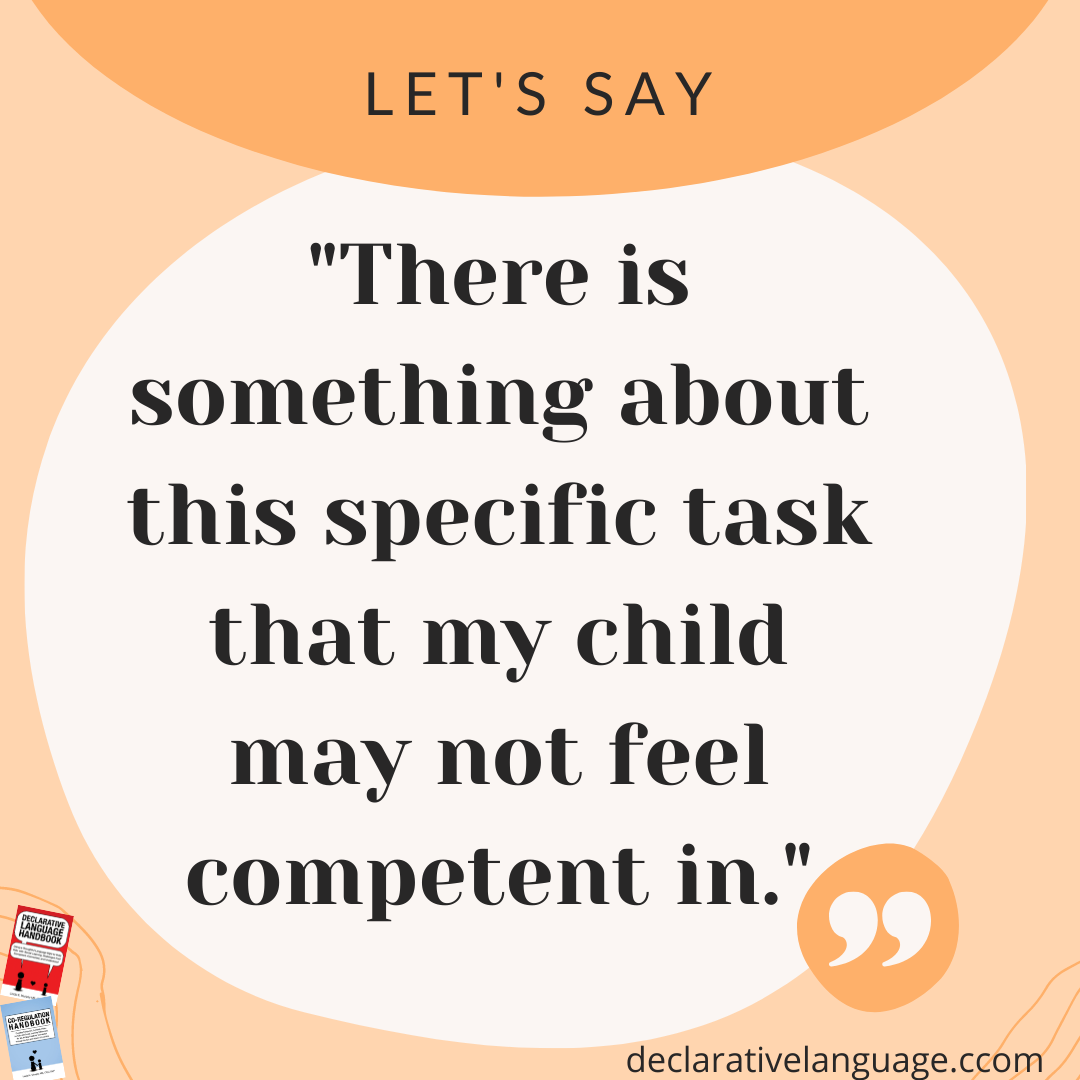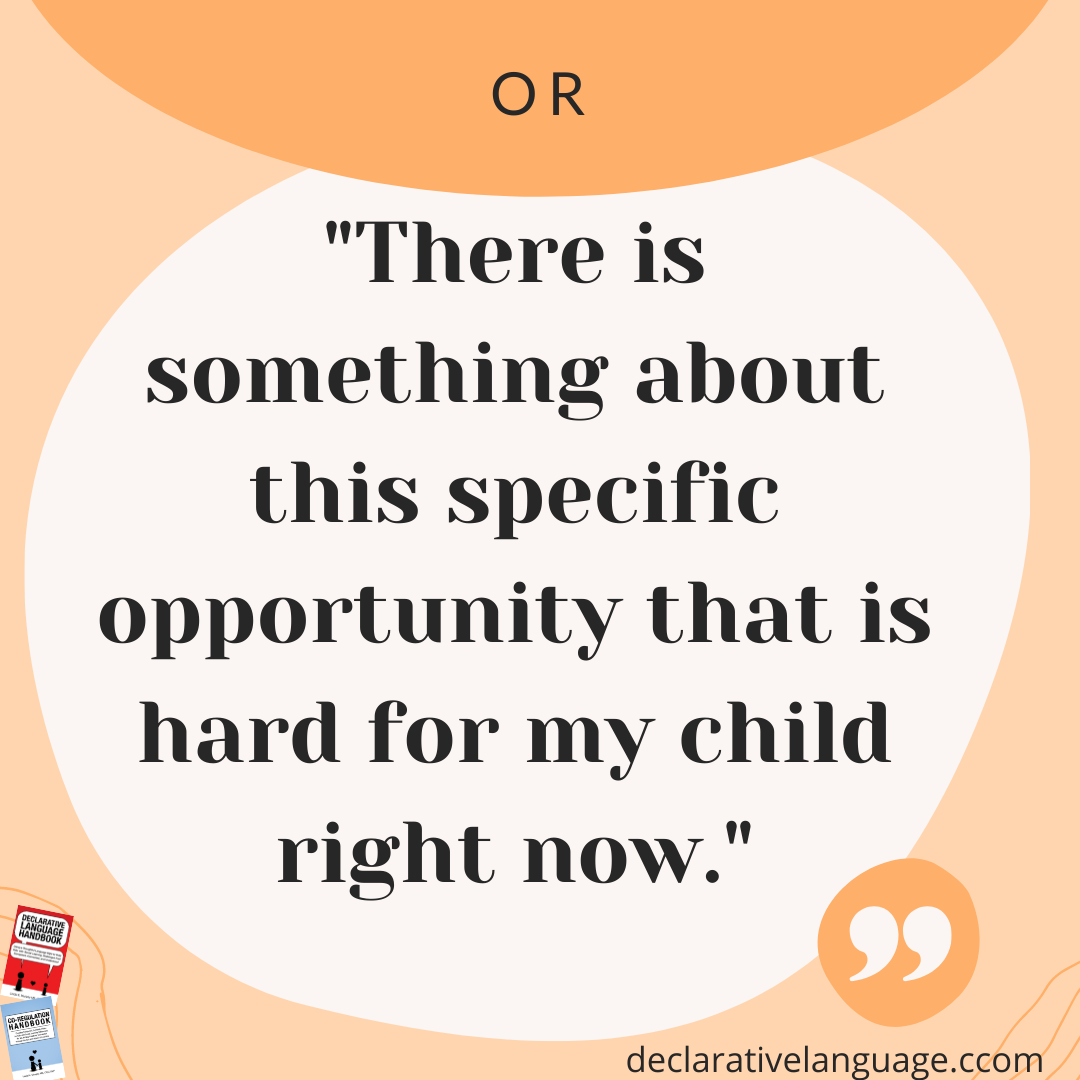Non-Preferred Tasks
We recently started a new 8-week Declarative Language Workshop and I love how our conversations give me so much food for thought. The topic of “non-preferred tasks” came up this week, which gave me a renewed opportunity to fine tune my thoughts on this term.
When we say a child “doesn’t engage in non-preferred tasks”, we are lumping many items into one bucket. And I don’t think this is helpful. Using this term to talk about many things does not help the child do it any faster, and it doesn’t define for us how we can best help.
Rather, this term often sets up negative feelings all around. We become impatient with them for not doing what we think they should, and they become annoyed or frustrated with us for asking.
So, what can we do instead?
We must approach each situation (or task) individually.
Let me explain why, using myself as an example.
There are many tasks that are not my preferred thing. And each of these has its own reasons why. When it is important, I usually find a way to get these things done. But different things help me to do this.
For example, I am motivated to do some tasks because they are important to my family. For other tasks, I am more likely to get started when someone is patient with me and offers guidance. Maybe I need help remembering the sequence of steps, or maybe I need reassurance because it is outside my comfort zone. Maybe I am tired after a long day of work or a poor night of sleep, and any help is appreciated. Or maybe I just need an extra hand so I can get it all done in the time I have available. And some tasks I am more likely to do, if I can do it with a friend.
Different things are helpful at different times, based on the task and based on the moment.
Now back to our kids.
Each opportunity or task that you want your child to engage in is unique and likely contains different demands. For example, there may be fine motor demands with one task, motor planning demands with another, working memory demands with a third, and time management demands with a fourth. And many tasks have more than one of these demands! Furthermore, sometimes in the moment fatigue or hunger or sensory processing differences can make everything harder too.
It is important to consider each opportunity on its own and learn more about what the obstacle in that instance might be, so that we can figure out the best way to help.
As we increase the specificity of our own language around what we may have initially called a “non-preferred task”, it will help us think uniquely about each learning opportunity and get to the business of problem solving together.
Our language matters because when we frame areas of challenge with specificity, it helps us bring empathy, compassion, openness, and connection to our kids who are struggling.
Here are some ways to do this.
Instead of saying, “My child doesn’t do non-preferred tasks”, we can say…
There is something about this specific task that my child may not feel competent in.
Or
There is something about this specific routine that my child might feel worried or anxious about.
Or
There is something about this specific opportunity that is hard for my child right now.
Or
I think my child has the skills to do this specific task on their own, but something is getting in the way right now. I wonder what that is.
From this place of openness, we can create competent roles for our child in the moment and use partnership (over prompting) to engage them, and get the job done. I talk about this a lot in Co-Regulation Handbook.
This will create positive forward momentum.
When we help kids experience success and positive emotions around an effortful task, it will become easier for them to start on another day.
An accumulation of concrete, successful experiences and positive episodic memories around that effortful task will build over time, and lead toward automaticity: when something becomes habitual, and is no longer effortful.
This is where we all want to get to!
So … don’t start with by lumping all “non-preferred tasks” into one bucket. Start with openness. Start with specificity. And start with a competent role.
Want all these ideas in one handout? Download it here!
Have a great week!
Due to popular demand, we’ve added another Declarative Language Workshop! Visit here if you are interested!
If you like my Sunday Snippets of Support, you can receive them directly to your inbox here.










